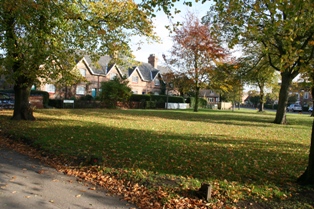
Sir Henry Abel Smith, was a British Army officer who served as Governor of Queensland, Australia. He married Lady May Cambridge, a niece of King George V and Queen Mary.

Baron Bicester, of Tusmore in the County of Oxford, is a title in the Peerage of the United Kingdom. It was created on 29 June 1938 for the banker Vivian Smith. As of 2018 the title is held by his great-grandson, the fifth Baron, who succeeded his first cousin once removed in 2016.

Julian Pauncefote, 1st Baron Pauncefote, known as Sir Julian Pauncefote between 1874 and 1899, was a British barrister, judge and diplomat. He was Permanent Under-Secretary of State for Foreign Affairs between 1882 and 1889 when he was appointed Envoy Extraordinary and Minister Plenipotentiary to the United States, an office that was upgraded to that of Ambassador to the United States in 1893. Elevated to the peerage as Baron Pauncefote in 1899, he died in office in 1902.

Samuel Hood, 2nd Baron Bridport, of Redlynch House in Wiltshire, of Cricket House at Cricket St Thomas in Somerset, and of 12 Wimpole Street in Westminster, was a British politician and peer.

Robert John Carrington, 2nd Baron Carrington,, was a politician and a baron in the Peerage of Great Britain. He was the son of Robert Smith, 1st Baron Carrington, and Anne Boldero-Barnard. He adopted the name "Carrington" in 1839.

Wilford is a village in the city of Nottingham, Nottinghamshire, England. The village is to the northeast of Clifton, southwest of West Bridgford, northwest of Ruddington and southwest of Nottingham city centre. It is at a meander of the River Trent.

John Smith was a British politician who sat in the House of Commons from 1806 to 1835 and a banker.

Abel Smith of Wilford House in the parish of Wilford, near Nottingham, England, was one of the leading bankers of his time and served thrice as a Member of Parliament.

Abel Smith III of Wilford House in the parish of Wilford, near Nottingham, England, was a British banker and politician who sat briefly in the House of Commons from 1778 to 1779.

Abel Smith was a longtime British Member of Parliament.

Samuel Smith was a British Tory Member of Parliament and banker.

George Smith was a British Member of Parliament (MP), banker and director of the East India Company.

The Smith, later Bromley, later Pauncefote-Bromley, later Bromley-Wilson, later Bromley Baronetcy, of East Stoke in the County of Nottingham, is a title in the Baronetage of Great Britain. It was created on 31 October 1757 for the banker George Smith, High Sheriff of Nottinghamshire from 1757 to 1759. He was the eldest son of Abel Smith I (1686–1756) of Nottingham, the 2nd son of Thomas Smith I (1631–1699), the founder of Smith's Bank in Nottingham. His younger brothers included: Abel Smith II (1717–1788) and John Smith, ancestor of Julian Pauncefote, 1st Baron Pauncefote.

Abel Smith JP was an English landowner of the Smith banking family and Conservative politician.

Smith's Bank was a series of English banking partnerships in London and the provinces, all controlled by the Smith family that operated between 1658 and 1918. Although Smith's Bank was never a single entity, the first bank was established in Nottingham by Thomas Smith; often dated to 1658, it is believed to be the first bank to be formed outside London.

Frederic Chatfield Smith was head of Smith's Bank in Nottingham and a British Conservative Party politician.

Charles Ichabod Wright was a British banker and Conservative politician who sat in the House of Commons from 1868 to 1870.

George Robert Smith was an English banker and Whig politician. His great-grandfather was Thomas Smith, founder of Smith's Bank; his father George Smith (1765–1836) was a director of the East India Company.

The Smith family is an English aristocratic and banking family founded by Thomas Smith (1631–1699), the founder of Smith's Bank of Nottingham. Its members include the Marquess of Lincolnshire (extinct), the Viscount Wendover (extinct), the Barons Carrington, the Baron Pauncefote (extinct), the Barons Bicester, the Bromley baronets and many Members of Parliament. Originally named Smith, the branch of the Barons Carrington assumed the surname Carington, the branch of the Bromley baronets the surname Bromley and the branch of the Baron Pauncefote the surname Pauncefote.

Sir George Smith, 1st Baronet (1714-1769) of Smith House, Angel Row, Nottingham and of Stoke Hall in the parish of East Stoke in Nottinghamshire, was a member of the Smith family of bankers, who established Smith's Bank in Nottingham in 1658. He was created a baronet "of East Stoke in the County of Nottingham", a title in the Baronetage of Great Britain, on 31 October 1757.









